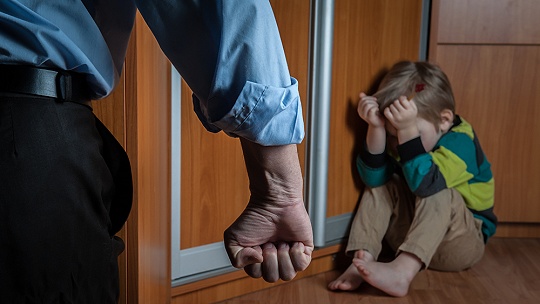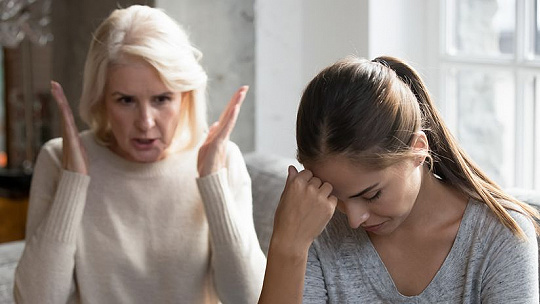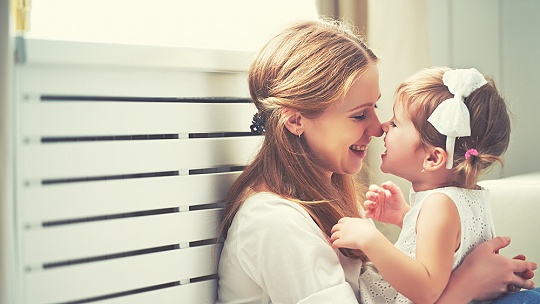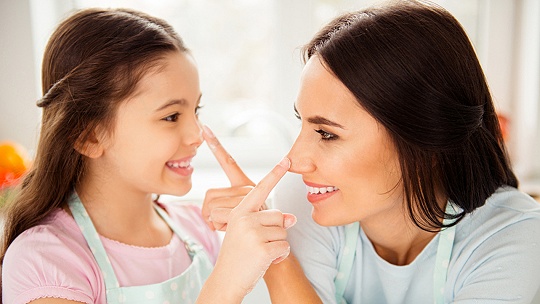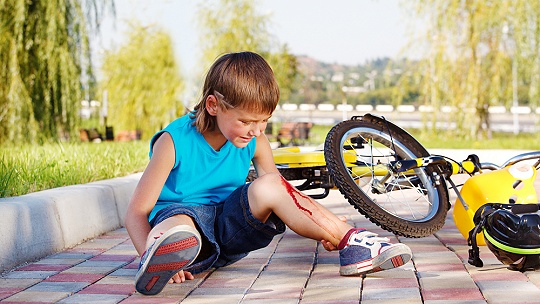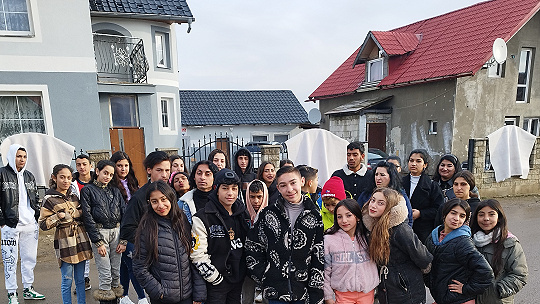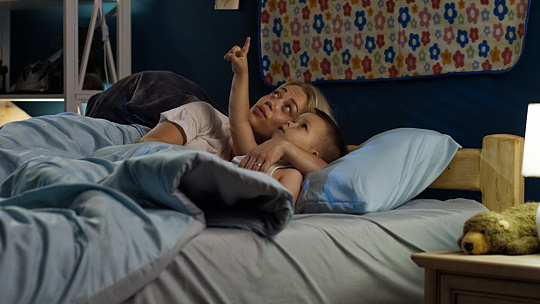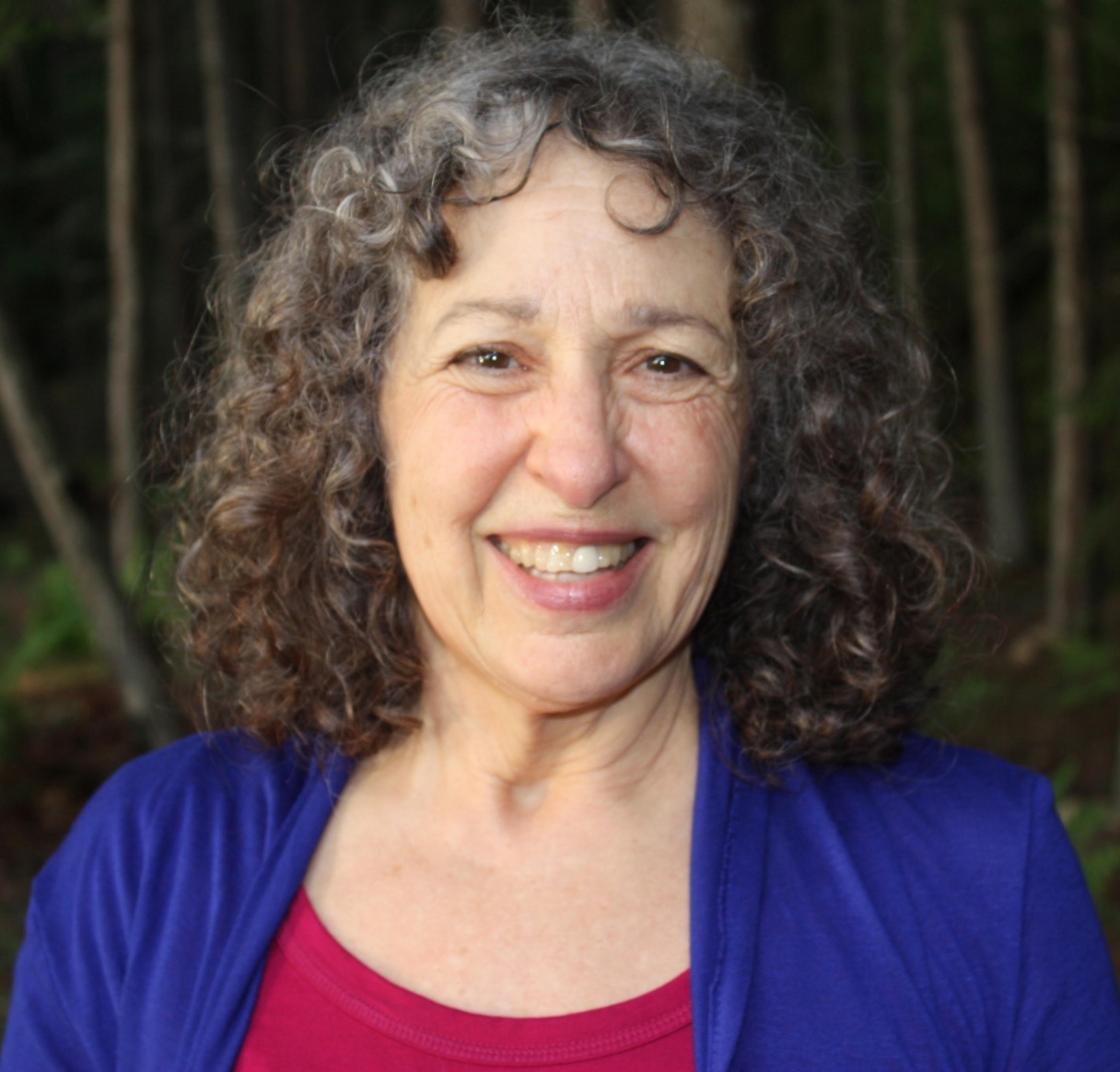
Dieťa sa učí z toho, čo zažíva s vami, z vašich emócií, z vášho odpúšťania, z vašej radosti či smútku, láskavosti, súcitu, vraví Naomi Aldort.
Foto: archív Naomi AldortSte veľmi múdra žena, zdá sa, že viete o deťoch takmer všetko, správne k nim pristupovať, vyriešiť každý problém, situáciu s nimi... Je to tak? Alebo je ešte niečo, čo by ste chceli vedieť lepšie?
Učenie, záujem, zmeny a zvedavosť sa nikdy nekončia. Veľakrát som aj ja zmenila svoje zmýšľanie, no vždy verná základným princípom lásky, láskavosti, rešpektu k dieťaťu, napojenia sa naňho, jeho emočnej slobody a odolnosti pri zdolávaní prekážok. Takže áno, stále sa učím. Z mnohých skúseností rodín z celého sveta, z vyrastania mojich synov, z detí, z histórie, z prác lídrov, básnikov a mysliteľov. Nikdy sa neprestanem učiť. Viem si dokonca predstaviť, že aj na smrteľnej posteli mi napadnú nové zistenia alebo inšpirácie.
Základná otázka všetkých rodičov je, ako byť dobrá matka/otec. Čo by ste im poradili?
Pracujte na sebe. Nie je to o nejakom štýle rodičovstva, ale o tom, kto ste vy. Dieťa sa učí z toho, čo zažíva s vami, z vášho správania, vašich emócií, z vášho odpúšťania, z vašej radosti či smútku, z vašej láskavosti, súcitu a z neustálej ochoty učiť sa. To je dôvod, prečo moje, ale nielen moje, workshopy alebo súkromné sedenia, sú najlepším spôsobom ako pozitívne ovplyvňovať rodičovstvo. Uvidíte seba, uvedomíte si a premietnete svoje spôsoby bytia, citové obmedzenia a mnohé ďalšie záležitosti. Keď sa od toho dokážete oslobodiť, uvidíte svoje dieťa v novom svetle a využijete všetky znalosti, ktoré učím. S ľahkosťou, bez boja so sebou samým alebo svojím dieťaťom.
Vo vašej knihe Vychovávame deti a rastieme s nimi píšete o magickej formulke SALVE. (S, separate – nájsť odstup od chovania dieťaťa, jeho i svojich emócií, A, attention – venovať pozornosť dieťaťu, L, listen – načúvať mu, V, validate – uznať jeho potreby a pocity, E, empower – povzbudiť dieťa, nech sa vysporiada s problémom). Je to správny kľúč k tomu, ako byť dobrý rodič?
Neexistuje jediný absolútny spôsob. Každý z nás si musí nájsť vlastnú cestu. Áno, SALVE môže byť úžasnou cestou, ako sa zbaviť zápasu a venovať sa dieťaťu, nie vlastnej citovej reakcii. V každom prípade, veľa rodičov musí na sebe veľa pracovať, aby boli schopní aplikovať túto formulu. Pre mnohých je SALVE extrémne presvedčivá a účinná. Iní rodičia zisťujú, že potrebujú viac pracovať na sebe, aby mohli stíšiť vlastné ego a zamerať sa na dieťa s takou dôverou, uvedomením si a láskou. Pretože v danom momente je ich vlastná reakcia aktivovaná, vyzerajú akoby v stave tranzu, neschopní sa zastaviť. Ako pracujú na sedeniach cez Skype alebo workshopoch, stávajú sa schopnými SALVE úspešne zužitkovať.
Váš hlavný postoj zovšeobecnene vyznieva v zmysle: Nehovorte dieťaťu nie, vždy potvrďte jeho stanovisko a potom povedzte vaše, alebo ešte lepšie – nechajte dieťa, nech samé zistí, čo je správne. Je to tak?
Nie celkom. Naše stanovisko často nie je vôbec potrebné. A rodič môže povedať „nie“ dieťaťu. Čo je kľúčové, je nehovoriť „nie“ jeho detským zámerom. Veľakrát hovoria rodiča „nie“, keď to vôbec nie je potrebné, čím zraňujú vlastný vzťah s dieťaťom, vzájomnú dôveru, ako aj dôveru dieťaťa v seba samého. Dieťa získa postoj: „Čo ja chcem, je nesprávne, spôsobuje to stres, nemôžem si dôverovať.“ Dokonca ak aj dieťa chce napríklad udrieť iné dieťa, namiesto toho, aby sme začali vetu: „Neudierame druhých“, teda negovaním pocitov a zámerov dieťaťa, môžeme začať s: „Chceš udrieť Jamieho a chceš naspäť svoj vláčik. Pomôžem ti.“ Možno pomôžete získať pokojne vláčik späť. Ak je to niečo, čo sa nedá splniť, buďte s rozrušeným dieťaťom, dajte mu bábiku, do ktorej môže udierať, pýtajte sa ho, aby vám povedalo viac a načúvajte mu. Takto ste nepovedali ani raz „nie“, ale vytvorili ste jasnú alternatívu, ktorá dieťa naučí, že nebijeme druhých. Dieťa sa to naučí bez toho, aby ho to zranilo.
To, kým je rodič, je dôležitejšie než to, aký rodičovský prístup volí. Pokiaľ teda je milý, rešpektujúci a neuráža dieťa.
Alebo iný príklad. Povedzme, že vaše dieťa chce iné dieťa odstrčiť z hojdačky. Nemusíte mu hovoriť všetko to, čo sa hovorí, keď vaše dieťa nemôže mať čo chce. To je len sypanie soli do rany, a ak to urobíte, dieťa to bude vnímať, že ste proti nemu a držíte stranu tomu druhému dieťaťu. Namiesto toho láskavo zoberte svoje dieťa a povedzte: „Želáš si byť teraz na hojdačke, a hojdá sa tam iné dieťa. Chceš počkať, kým skončí alebo sa pôjdeš poobzerať po niečom inom namiesto toho?“ Ak dieťa plače a trvá na tom, že sa chce hojdať, môžeme ho počúvať, objímať, sedieť s ním a čakať, kým nenájde samé riešenie. Alebo medzitým to hojdajúce sa dieťa odíde.
Ako ste zistili, že tento postoj voči deťom je naozaj správny? Štúdiom alebo vlastnou skúsenosťou?
Nikto, ja ani nik iný, nemá „jediný správny“ spôsob. Neexistuje ale iná správna cesta ako byť milý, starostlivý a rešpektujúci. Každý rodič chce byť milý a napojený na svoje dieťa. To, kým je rodič, je dôležitejšie než to, aký rodičovský prístup volí. Pokiaľ teda je milý, rešpektujúci a neuráža dieťa. Moje poradenstvo rodičom sa mení, rovnako ako okolnosti a spôsoby, ako dosiahnuť s dieťaťom lepšiu väzbu a pochopenie. A za tým, ako rozvíjam to, čo učím, je oboje – moja vlastná skúsenosť s rodinami a mojimi synmi, rovnako ako čítanie a učenie sa od mysliteľov. Nie je to potrebné len pre rodičovstvo ale celkovo pre život a vzťahy.
Ktoré sú situácie, kedy by mal rodič povedať dieťaťu „nie“?
V oblastiach bezpečnosti a pocitu pohody môžeme povedať „nie“, ale stále môžeme začať s potvrdením toho, čo dieťa chce. „Rád by si sa v autosedačke odpútal. Potrebujem najprv zastaviť auto, potom si môžeš dať prestávku od bezpečnostných pásov.“ Alebo: „Chceš skočiť do vody. Nie je to tu bezpečné, ale môžeme ísť zajtra do bazénu.“ Ak chce dieťa prebehnúť cez cestu, zastavte ho, objímte a povedzte: „Och, to som sa vystrašila, som tak rada, že som ťa zachytila predtým než si sa tam rozbehol.“
Keď realita hovorí „nie“, nemusíme byť práve tými dozorcami, ktorí chránia dieťa pred tým, čo chce. Ak plavčík povie, aby sme opustili bazén, pretože sa zatvára a vaše dieťa ešte nechce ísť, jednoducho mu povedzte fakty. Ak nevychádza von, povie mu to plavčík. Prípadne ho môžete požiadať, nech to rovno povie dieťaťu a nemusí to ísť cez vás.
Pre mnohých rodičov je veľký problém, ako nájsť hranicu medzi tým, kedy potvrdiť dieťaťu jeho stanovisko a kedy byť tým vodcom, ktorý ho usmerňuje. Ako ju nájsť?
To sú dve rozdielne veci. My sme vodcami v kontexte všetkého, čo robíme ako rodičia, aký vytvárame domov, jedlo, istotu, podmienky a nastavenia, ktoré umožňujú deťom plniť ich zámery bez toho, aby niekoho zranili. Potvrdenie detských emócií alebo volieb je len jeden z aspektov líderstva, pochopenia dieťaťa, naplnenia jeho emocionálnych potrieb. Ako líder podporíte jeho zmysel pre sebadôveru a uzdravenie.
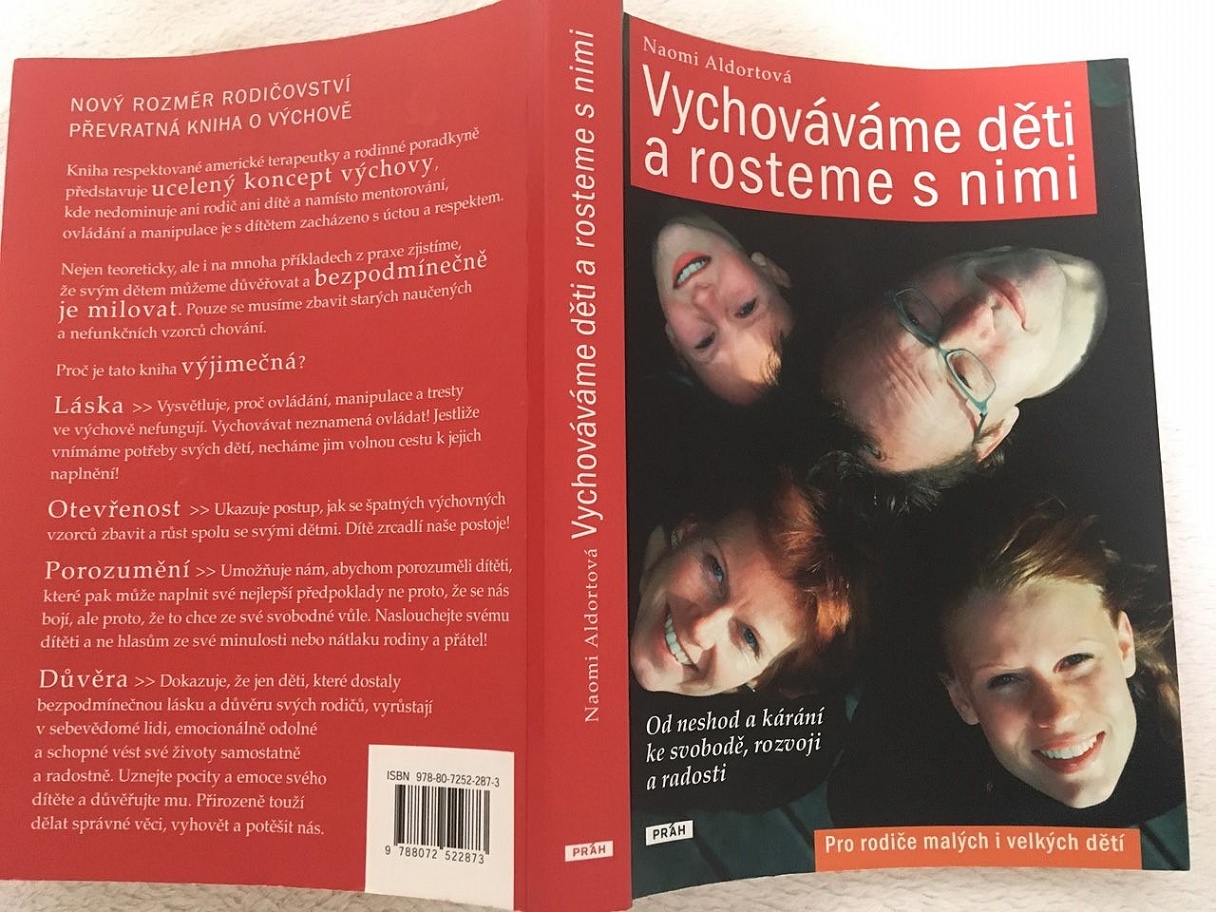
Kniha Raising Our Children, Raising Ourselves bola preložená do 19 jazykov.
Foto: Patricia PoprockáV knihe píšete tiež o bezpodmienečnej láske. Dieťa, ale vlastne každý, sa chce cítiť akceptovaný taký, aký je. Prečo však majú mnohí majú zaužívané akési zlozvyky, keď ľúbia svoje deti či vnúčatá, ale nevedia im to dať najavo?
Tým iba reagujeme na našu vlastnú citovú bolesť. Vyzerá to, že je to o dieťati, ale reakcia vychádza z našej vlastnej ťažoby, ktorú máme. Ak nám záleží na dieťati, nemali by sme reagovať na to, čo cítime my, ale na to, o čo ide dieťaťu. Na mojej webstránke je video The Child is Right, Dieťa má pravdu. Vysvetľuje, prečo deti majú vždy pádny dôvod na to, čo robia alebo nerobia, ako to pochopiť a reagovať na ich oprávnené potreby. A ešte – dieťa sa nechce cítiť akceptované. Dieťa sa rodí s istotou, že je milované a akceptované. Naša práca nie je ničiť ten zdravý zmysel, základ, na ktorom dieťa môže rásť s vnútornou slobodou.
Ako sa môžu ľudia naučiť byť lepšími osobnosťami, lepšími rodičmi?
Úprimne? Zúčastnite sa na sedeniach cez Skype, so mnou alebo inými sprevádzajúcimi osobami. A organizujte workshopy – online alebo naživo. Rodičia, ktorí na sebe konzistentne pracujú, zmenili svoje životy. Mám veľa rodín, ktorí rozprávajú o obrovskom rozdiele vo vzťahu k deťom, keď sa dokázali oslobodiť od zväzujúcich emocionálnych limitov. Stali sa schopnými vidieť svoje deti cez optiku lásky a vnímať opodstatnenosť ich potrieb a činov. Keď sa zameriate na dieťa a porozumenie mu, je ľahké reagovať s vzájomnou väzbou a láskou.
A čo dôvera? Čo myslíte, prečo tak veľa rodičov nedôveruje svojim deťom, že si dokážu s problémom poradiť?
Ak hovoríte o dôvere ako takej, je to preto, že nedôverujú sami sebe, a keď boli deťmi, nikto nedôveroval im. Výsledkom je domnienka, že deťom nemožno veriť.
Avšak, väčšinou keď rodičia hovoria, že nemôžu dôverovať svojmu dieťaťu, mienia tým, že sa nemôžu spoľahnúť, že bude robiť to, čo chcú, aby robilo. Toto ale nie je dôvera, je to kontrola. Naozaj sú rodičia korektní, v tom, že neočakávajú od dieťaťa, aby robilo, čo chcú oni. Ale môžu mu úplne dôverovať, nech robí, čo chce a zároveň mu dať na výber z optimálnych možností, v prijateľných medziach. Čo tým myslím je, že nezoberieme dieťa na párty a nebudeme „veriť“, že nebude jesť koláč a cukríky. Sú spôsoby, akými môžeme minimalizovať riziko konzumácie nezdravého jedla, ale to nemá nič s dôverou. Byť rodičom-lídrom nie je o kontrole, ale o nastavení vecí tak, že kontrola nie je potrebná.
Je tu tiež akýsi kruh – matka nedôveruje dieťaťu, že je schopné niečo úspešne urobiť, očakáva nezdar, dieťa plní očakávania matky, takže pochopiteľne, sa mu to nepodarí. A potom matka konštatuje: Mala som pravdu! Takže kde začať, ako to prelomiť?
V mojej knihe hovorím o dôležitej zásade: nepomáhať deťom, nechať ich padnúť, neuspieť. Nechajte deti robiť aktivity v prostredí, ktoré môže úspešne zvládnuť a choďte nabok. Pád je veľmi významná životná lekcia, rovnako ako malé zranenia. Keď sa nejaké prihodia, neponáhľajte sa s hrôzou k dieťaťu. Počkajte, kým vás samé zavolá. Prípadne, ak je to možné, zostaňte neviditeľní. Bez úzkostnej reakcie rodičia sa dieťa často postaví a pokračuje v hre. Ak potrebuje pomoc, príde za vami alebo vás zavolá a vy môžete prísť pokojne, postarať sa o veci vľúdnym prístupom.
V zásade, koncept úspechu je chybný a zraňujúci. Preto najlepším riešením je zbaviť sa toho, aby sme chceli od dieťaťa vopred určitý výsledok. Nepotrebujeme „úspech“. Potrebujeme emocionálnu nezlomnosť a lásku.
V Česku ste sa pred časom zúčastnili na seminári o domácom vzdelávaní. Myslíte si, že je učenie sa doma lepšie než v škole? Prečo?
To nie je záležitosť miesta. Učenie sa doma alebo v škole je vždy učenie a preto oboje, ak nie sú na požiadanie, sú zraňujúce. Zaoberám sa tým aj na mojej stránke. Homeschooling (domáce vzdelávanie, pozn. red.) je lepšie, keď necháme dieťa pestovať vlastné záujmy a poskytneme mu, čo potrebuje, než keď by sme mu nariaďovali. V krajinách, kde je systém prísnejší, sú možno preložené detské aktivity do jazyka, ktorý vzdelávací systém akceptuje. Takže ak dieťa hrá monopoly, učí sa matematiku. Ak kŕmi zvieratká, má biológiu, ak spieva, hudobnú výchovu a ak sa hrá s inými deťmi, má etiku, sociológiu alebo občiansku výchovu. Ak systém vyžaduje viac, slobodné dieťa pochopí a spolupracuje tak, že vypracúva povinné papierové testy, pokiaľ si môže žiť svoj život a rozvíjať vlastné záujmy.
Školský systém na Slovensku sa nepovažuje za príliš pokrokový, ale mnoho ľudí si myslí, že ten v USA je lepší. Aké máte Vy výhrady?
Americké školstvo má v sebe niektoré viac tolerantné idey modernej doby, ale stále je to školstvo: Určuje rozsah pozornosti školským zvoncom, rozhoduje, čo by sa mal študent učiť, kde a s kým, dáva domáce úlohy, testuje, odmeňuje, kára, hodnotí; je súťaživé a autokratické. Veľa rodičov v Amerike si želá pre svoje deti život v rovnocennosti, aby mohli byť sami sebou a pestovať si vlastnú agendu s ohrozením a ochranou, nie kontrolou.
Povedzte ešte niečo o sebe, aké bolo Vaše detstvo?
Ovplyvnila milióny rodičov po celom svete. Jej kniha Raising Our Children, Raising Ourselves bola preložená do 19 jazykov. Ukazuje rodičom spôsob, ako vychádzať s deťmi bez neustálej kontorly, príkazov a zákazov, s rešpektom a láskou. Naomi Aldort má troch dospelých synov, všetkých porodila doma, nosila, a neskôr aj doma vzdelávala. Má silné ekologické cítenie, je vegetariánkou, nepoužíva lieky, kozmetiku ani saponáty.
Veľa rodičov si myslí, že s vlastnými deťmi máte zrejme dokonalý vzťah, keďže viete, kedy ako reagovať, pomáhať, riešiť problémy... Ako spolu vychádzate?
Nevidím nič špeciálne na mojej rodine. Riešime rovnaké záležitosti ako ktokoľvek iný. So svojimi troma synmi mám skvelý vzťah, ale tiež máme spory či radosti. Veci sa vyvíjajú, posúvajú. Myslím si, že hlavný benefit môjho prístupu k deťom je, že sa rozprávame o veciach a každý si môže bezpečne vyjadriť svoj názor, takže si môžeme užívať naše vzájomné prepojenie.
Čo robíte momentálne, v tomto čase – nejaký nový projekt, poradenské služby?
Práve som sa rozhodla čiastočne odpočívať, čo znamená, že som prestala pracovať na mojej ďalšej knihe. Hoci už mám prepisy workshopov a aj veľa napísaného. Kým niekto nepríde a neponúkne sa, že to dá dokopy, s najväčšou pravdepodobnosťou nebudem publikovať ďalšiu knihu. Moja práca s rodičmi pokračuje najčastejšie cez Skype a príležitostne workshopmi alebo webovými skupinami. Moje dni pozostávajú z písania množstva článkov, rozhovorov ako tento, odpovedaním na emaily a – vrátila som sa k učeniu hry na klavír. Tiež sa denne prechádzam, pracujem v záhrade, hrám na klavíri a rozprávam sa so synmi.
Chystáte sa aj do sveta? Uvidíme Vás na Slovensku?
Cestovanie a workshopy mám naplánované na konci roka, vrátane Slovenska, ale ešte to zvažujem. Nechcem sa podieľať na znečisťovaní planéty letmi, tak možno ponúknem workshop cez projekciu na diaľku.
The English version:
You are a very wise woman, you seem to know everything about the right dealing with the children how to solve the problems... Is that right? Or is that something you would like to improve? What would that be?There is never an end to learning, interest, changes and curiosity. I have changed my mind many times, while staying committed to the core principals of connection, love, kindness, respect, and the child’s emotional freedom and resilience. So yes, I am still learning from the many experiences of families around the world, from my grown up sons, from children, and from history and writings of leaders, poets and thinkers. I will never stop learning. I can only imagine myself on my death bed, coming up with a new realization or being inspired by a child or adult’s insight.
The principal question of all parents is: How to be a good mother/ father? What would you advice?
Work on yourself. It is not so much about parenting style, as it is about who you are being. The child learns from what she experiences with you, your behavior, your emotions, your forgiveness, your joy/sadness, your kindness, compassion and constant willingness to learn. This is the reason taking my or others’ workshops or private sessions is the best way to make a positive impact on your parenting. You get to see yourself, reflect and become aware of your ways of being, your blind sports, your emotional limitations and more. When you free yourself, you can observe your child with a new clarity and become able to use the skills I teach, with ease and without struggling against yourself or against your child.
In your book Raising Our Children, Raising Ourselves you write about „magic“ SALVE. Is that the right key how to be a good parent?
There is no one absolute way. Each of us must find their path. And, yes, the SALVE can be an amazing way to relieve oneself from struggle, and to become present to the child (instead of to one’s own emotional reaction). However, many parents have to do a lot more work on themselves before they are able to actually do this formula. For many, SALVE has been extremely potent. Other parents who work with me on Skype or in workshops find that they needed more work on themselves before they can quiet their own ego and focus on the child with such trust, awareness and love because, in the moment that their reaction is activated, they seem to be in a ‘trance’ like state and unable to stop themselves. Once they do more work in their sessions via Skype or in workshops, they become able to utilize SALVE successfully.
You also say something like: „Never say ,no, to your child, always confirm her view and than say yours,“ or better – „... and than let the child find out what is right...“ Is that so?
Not exactly. Our view of often not needed at all. And, a parent can say ‘no’ to a child. What is crucial is not to say ‘no’ to the child’s… child’s intent. Most often parents say ‘no’ unnecessarily and harm their own relationship of trust with the child and the child’s trust of herself too (what I want is wrong, or is causing stress, I cannot trust myself.) Even when a child wants to hit, instead of starting with, “We don’t hit,” which negates the child feelings and intent, we can start with, “You want to hit Jamie and you want your train back. I will help you.” Maybe you help get the train back peacefully, or, if it is not something that can be accomplished, be with the upset child, give a doll to hit, ask the child to tell you more, and listen. You never said the word ‘no’ but you did create a clear alternative that teaches not to hit without hurting the child.
Let´s say your child wants to push another child off the swing. You don’t have to say the obvious when your child cannot have what she wants. That’s just throwing salt on the wound and if you do that, the child sees you as being against her and taking side with the other child. Instead you pick your child up lovingly and say, “You wish you could be on the swing now and another girl is swinging on it. Would you like to wait, or go look for something else to do?” If the child cries and insists, we can listen, hug, sit with, and wait till she resolves it for herself. (Or meanwhile the child on the swing leaves.)
How did you find out this way of attitude is just the right one, the only correct? Is that the study or your own experience?
No one, I or anyone, has “just the right” way. There is no one correct way other than being kind, caring, and respectful. Every parent wants to be kind and connecting. Who the parent is being has more impact than what parenting approach they use (as long as they are kind, non abusive and respectful). My teaching keeps changing as well in terms of ways to achieve a better connection and understanding. As for how I develop what I teach, it is both, my own experience with families and with my sons, as well as reading and learning from thinkers, not necessarily only on parenting but about all of life and relationships.
What are the situations the parents should say „NO“ to the kid?
In areas of safety and wellbeing we can say, ‘no’, but even then, one can start with affirming what the child wants; “You would like to take off the seat belt. I will need to stop the car first, then you can take a break from being buckled up.” Or, “You want to jump into the water. It isn’t safe here, but we can go to the pool tomorrow.” If a child runs into the street, you stop her and hug her saying, “Wow, I got scared, I am so glad I got you in my arms before you ran out there.”
When reality says ‘no’, we don’t actually have to be the guard preventing the child from what she wants. If the life-guard says to leave the swimming pool as it is closing and your child doesn’t want to get out, just tell her the facts. If she doesn’t come out, the guard will tell her. You can even ask the lifeguard to tell it to your child and not be the go between.
It is a big problem of many parents – how to find the line between confirming and leading... Is there any recipe how to find it?
These are two different things. We are leaders as a context of all we do as parents, providing a home, food, safety, and the conditions and setups that make the child’s intents possible without harm to anyone. Confirming the child’s emotions or choices is just one aspect of being a leader, of understanding the need of the child and, as a leader, providing for the emotional need to enable a sense of self-trust and recovery.
You also write about unconditional love. The child (every person) wants to feel accepted in the way he/she is. What are the bad habits when people/parents, grandparents love their children, but they are not able to show it, they just react wrong...?
We only react from our own emotional pain. It feels as though it is about the child, but it is a reaction from our own baggage. To care for the child we don’t react but respond; we respond to what is going on for the child. There is a video on my website called “The child is right.” It explains why children always have a valid reason for what they do or don’t do and how to understand it and respond to the valid need.
The child does not ‘want’ to feel accepted. The child is born being sure that she is loved and accepted. Our job is not to destroy this healthy sense that is the ground on which the child can grow with inner freedom.
How can people train to be better persons, better parents?
Honestly? Take sessions via Skype, with me or another guiding person. And, organize workshops online or live. Parents who have consistently worked on themselves as parents, have transformed their lives. I have many families who speak of the giant difference it made for their children when they freed themselves from the binding emotional limits. They became able to actually see the child with the eyes of love and notice the validity of the child’s needs and actions. When focused on the child and understanding her, it is easy to respond with connection and love.
What about the trust? What do you think, why a lot of parents do not trust their kids?
If you are talking actually about trust, then it is because they don’t trust themselves, as they were not trusted as children. The result is an assumption that the child cannot be trusted.
However, most of the time when parents say that they cannot trust the child they mean that they cannot count on the child to do what they, the parents, want them to do or be. This is not trust; it is control. Indeed parents are correct in not expecting the child to do what they want. But they can totally trust the child to do what she wants and make the optimal choices for herself within a safe context created by responsible actions and setups of the parents. What I mean by that is, that we don’t take a child to a party, and ‘trust’ the child not to eat candy and cake. There are ways, as leaders to minimize junk food exposure and consumption but it has nothing to do with trust. To be a parent-leader is not about controlling, but about setting things up such that no control is needed.
There is a cycle – mother does not trust that the kid is able to do something successfully, she expects an accident, the kid does what the mother expects, and at the end there is no success, but an accident. And the mother saying: „I was right, you can see it!“ So – how to break the cycle, where to start, what to do?
I speak in my book about the crucial importance of not helping children and letting them fail and fall. Expose the child to activities and environments in which the child can be successful and safe, and get out of the way. Failing is a very wonderful life lesson and so are minor injuries.
When injury occurs, don’t rush over ‘horrified.’ Wait to be called. Even stay invisible if possible. Without a parental anxious reaction, the child often gets up and keep playing. If she needs help she will come to you, or call you and you can come calmly and take care of things in a benign attitude.
Ultimately, however, the very concept of ‘success’ is flawed and harmful. Therefore the best solution is to let go completely of wanting the child to produce a certain outcome. We don’t need ‘success.’ We need emotional resilience and the love of reality however it turns out to be in each moment.
I saw you in the seminar, or meeting in Czech republic about homeschooling. Do you think the teaching at home is better that at school? Why? And – also in the USA? Our system in Slovakia is not very openminded, but almost everyone here thinks the US system is much better. What are your reservations to it?
It is not a matter of location. Teaching at home or teaching at school... are both teaching, and therefore both, when not asked for, are harmful.
Homeschooling is only better when we let the child pursue her own interests and we provide for her needs, rather than direct her. In countries where the system is more strict you may have to ‘translate’ the child’s activities to the language the education system accepts. So if the child plays monopoly, she has done math. If she creates a snail zoo feeding them etc, she is learning biology, if she sings, its a music lesson, and if she plays with other kids it is social studies. If the system requires more, a free child will understand and cooperate with doing some required paper work as long as otherwise she can run her own life and passions.
The American school has some more tolerant new age ideas, but overall it is still school: It shortens span of attention by ringing bells; it decides what the student should learn, where and with whom; it gives homework; does testing, praising, scolding and evaluation; is competitive and autocratic. Many parents in America wish to provide their children with a life equal to their own - free to be themselves and run their own agenda with exposure and protection, not control.
Let´s talk about you. What was your childhood like?
I grew up in war times and my parents divorced and then my mother divorced her second husband from whom I have a wonderful half brother. We lived in a one bedroom apartment part of which was an art studio for my stepfather. We had a piano in this tiny apartment and I played and had lessons in spite of poverty. School ended at noon most of the time and the rest of the day the neighborhood children played on the street or yards which I loved. I was a ‘good girl’ and excellent student but did not like school. I did see some abuse and certainly old fashion control and domination. My mother was very loving. My father was a kind man too, but, my mother didn’t let him see me much. As I grew older I created a relationship with him which was wonderful. I played a lot and spent time in nature by myself from a very young age. I was a loner type of child (as I am today.) Music became a focus which brought me a lot of joy and stayed a huge part of my life and teaching. It was not a wonderful childhood by any external measure, but my internal experience was one of delight.
Many parents would think that your relationship with your kids must be just perfect, because you know how to react, how to help, how to solve problems. Is that right? In the book Raising our children, raising ourselves you write about some situations in your own family – how is it today?
I don’t see anything special about my family. We go through similar issues like everyone else. I have wonderful relationship with my three sons but also have our struggles and our joys and things keep evolving and growing. I think the main benefit from my parenting ways is that we talk about things and that self-expression is safe so we can keep enjoying the connection.
What are you doing actually – any new project, consultant services, the world tour... Can we see you in Slovakia?
I actually have decided to partially retire, meaning that I stopped working on my next book even though I have transcripts of workshops and much already written. Unless someone steps in and offers to put it all together, I will most likely not publish another book. My parenting work continues mostly offering sessions via Skype and occasional workshops or web classes. My days include a lot of writing of articles, interviews like this one, answering emails, and, I returned to teaching piano and voice. I also walk daily, work on garden, practice piano and voice and talk to my sons.
I highly recommend for parents to take advantage of sessions via Skype, as these make a huge difference in people’s lives. The family intensive, when parents can afford it, is the best in making the fastest and most lasting transformation in bringing clarity, connection and joy to the family. As for travel and workshops, it is planned for the end of 2019 or early 2020, including Slovakia, but I am also considering not being part of.
As for travel and workshops, it is planned for the end of 2019 or early 2020, including Slovakia, but I am also considering not being part of polluting our planet with flights, and offering workshops on screen from distance. Check my website and sign up for my newsletter for details.
Naomi Aldort is the author of Raising Our Children, Raising Ourselves, (published in 19 languages). Aldort guides parents by Phone/Skype sessions and workshops internationally. Her guidance is not about gentle ways to control a child, but about how to have peace without having to control. It is about a way of being and of understanding children so they can do their best, not because they fear us or seek our approval, but because they want to, of their own free will.
Naomi Aldort brings peace and clarity to difficult situations as well as to ordinary parenting issues, including diet and lifestyle that promotes emotional and physical wellbeing and impacts a child’s behavior. From attachment parenting to optimal learning, siblings, aggression, sleep, tantrums, teens, marriage, educational choices and more; Naomi works holistically toward a peaceful and powerful parent- child relationships. Her SALVE communication formula has been praised as providing the best of The Work of Byron Katie and Nonviolent communication combined, and more. http:// authenticparent.com
